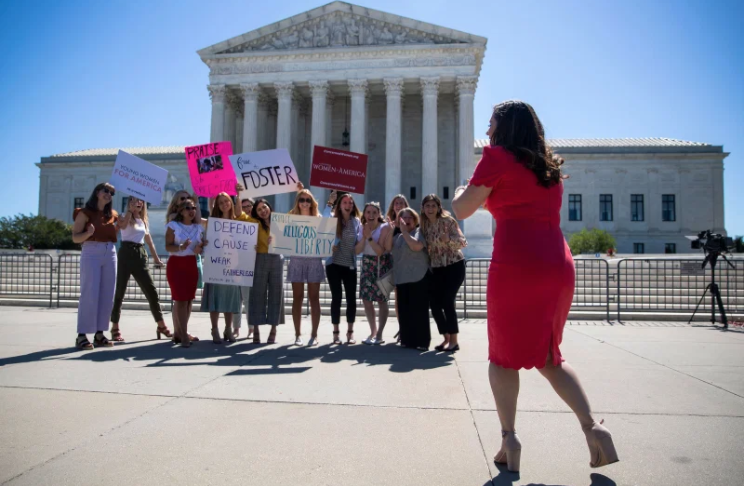Fulton v. City of Philadelphia
July 1, 2021
In March 2018, the city of Philadelphia learned that two of its foster care providers—Bethany and Catholic Social Services, both taxpayer-funded agencies—wouldn’t allow same-sex couples to be foster parents. It’s notable to mention that these providers were turning away qualified foster parents at a time when the city put out an urgent call for more fostering. In response, the city stopped referring children to Bethany and CSS, and then CSS, along with four of its foster parents, sued the city.
The Plaintiffs asked the court to order the city to renew its contract with CSS. In plain terms, their argument centered on the rights to free speech and free exercise of religion. Or, in the words of the ACLU of Pennsylvania, the Plaintiffs posited that they had a right “to reject qualified same-sex couples because they were same-sex couples.” The ACLU of Pennsylvania, joined by the national ACLU, intervened in the lawsuit. On behalf of the Support Center for Child Advocates and Philadelphia Family Pride, they contended that “Child Advocates and PFP and the people they serve would be harmed by a ruling in favor of CSS.”
Some three years later, on June 17, 2021, the Supreme Court of the United States ruled on Fulton v. City of Philadelphia. SCOTUS unanimously held that “governments can enforce nondiscrimination laws as long as they do so neutrally, but that the city of Philadelphia was not neutral in its application of its nondiscrimination laws.” In essence, the city’s decision not to renew CSS’ contract was found to be unconstitutional.
While some advocates expressed relief that nondiscrimination laws are enforceable, it’s worth noting that this case didn’t question the right for CSS or other like foster care providers to deny services for religious reasons. This is a devastating decision in that it significantly expands the preferential treatment given to religious claimants. It’s reasonable to worry that SCOTUS will continue its longstanding pattern of affording protections to religious institutions, such as CSS, at the expense of human rights, including LGBTQIA+ rights.
Fulton v. Philadelphia begs the question: Why are we so reliant on religious institutions to provide basic services? Debates over federal spending, from all political parties, center on how we view the role of ourselves, our communities, and our government in supporting people.
The federal government extends special treatment of religious institutions, and it also funds them. Per Oklahoma Representative Steve Russell’s 2016 testimony, the federal government awards over 2,000 contracts to religious organizations each year. And as Emma Green notes, “much of the infrastructure and money involved in the charitable provision of social services is associated with religion.” In a country where the social safety net is dreadfully insufficient (if not nonexistent), people rely on non-governmental organizations—often religious organizations—to oversee and offer critical resources.
For example, while we have the Supplemental Nutrition Assistance Program (SNAP), it excludes many people, including undocumented folks. Food banks are often the only source of aid for people excluded from aid programs. Even for those who have SNAP benefits, a trip to a food bank might still be necessary, and many food banks are run by religious groups. People need sustenance, and children need safe, healthy home environments. States run foster care programs, but they contract to nonprofits, both secular and religious.
The state cannot—or will not—give people the amount of quality, necessary social services they deserve, so other entities step in. I’m glad that religious organizations can give people a place to turn, but I’m upset that the state fails people in the first place. We at Woodhull Freedom Foundation recognize that the fight for sexual freedom is deeply tied to the human right to family, a right that the state should promote and protect. We firmly believe that LGBTQIA+ people should be able to parent, including through fostering, and the government shouldn’t be required to fund discriminatory religious agencies.

